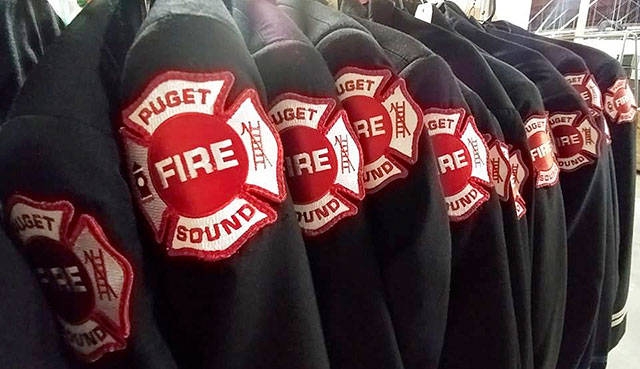Kent city officials will consider a plan to train police detectives to be fire investigators to save money in its shared services agreement with the Puget Sound Regional Fire Authority (RFA) in order to hire two or three more patrol officers.
Voters in 2010 approved the formation of the RFA by funding the agency through a property tax levy and a new fire benefit charge. Kent previously funded a fire department through the city’s general fund.
But while firefighters left, a few fire services remained with the city through an interlocal agreement. The city pays $3.1 million a year for fire investigations, fire prevention education and some of the information technology (IT) costs.
With the interlocal agreement expiring at the end of this year, city and RFA staff are looking at what to put in a new contract as the city tries to reduce costs.
The RFA – through amendments – has taken a number of services in house over time, said Derek Matheson, city chief administrative officer, in a Sept. 18 report to the City Council’s Operations Committee.
The agency took over commute-trip reduction, flexible spending and civil service examiner services in 2011; medical benefits, employee wellness and employee assistance program services in 2013; and most facilities maintenance services in 2016.
Today, the city provides IT services and some minimal maintenance at Station 74, which the RFA and city own, and Station 75, which the city owns. RFA provides to the city fire prevention (fire marshal), emergency management services and fire investigation (arson services).
The RFA plans to take over IT in 2020, if not sooner, Matheson said.
City staff proposes to have the police department take over fire investigations, and use the $450,000 per year savings for two or three new officers and to cross-train detectives to investigate fires. City staff plans to phase in that change. Right now, the city pays for three investigators and the RFA pays for one.
Under the proposal, the city would pay for one investigator in 2020-2021 to work alongside detectives but then drop that position in 2022.
“The city wants to bring services in house as part of a natural revolution from a city fire department to a separate fire authority,” Matheson said. “When Proposition A (to hire more officers) failed in April, it means we need to find even more creative ways to fund additional police officers.”
Matheson emphasized a lot of details remained to be worked out between city and RFA staff.
“We are in the very beginning stages and we have a lot of questions to work through, especially on fire investigators,” he said.
Council President Bill Boyce told Matheson he favors going slow with the change to detectives taking over fire investigations.
“The RFA and city have been good partners,” Boyce said. “I like the idea to work slowly through changes in investigations. My only concern with police taking over investigations is there is a special skill set for this. We would have to train officers who don’t have those skills now.”
Matheson replied the change would be examined closely.
“It is a special skill set and that is something we have to understand and work through,” Matheson said. “We don’t want to put any individuals at risk or compromise our ability to prosecute arson-related crimes.”
City staff will look at other cities with regional fire authorities and whether police handle fire investigations.
“I will be keenly interested to see how that works,” Councilman Dennis Higgins said. “If they contract with a RFA agency or if they do in-house is going to be critical information. The details will be very important. …We are all paying really close attention to this.”
The city pays about $645,000 per year to the RFA for emergency management services. City staff would like to reduce that amount by about $100,000, but leave open the potential to pay for additional services and staff, if necessary.
Matheson used a major brush fire earlier this year in Covington as an example that requires all hands on deck and extra costs. The RFA also serves Covington.
The city’s reasons for changes to reduce costs of the agreement are part of the overall reduction in Kent’s budget because of a loss of state-shared revenue over the next two years.
“The city spends about 3 percent of its general fund on RFA contract services and with the looming fiscal cliff each department needs to contribute to a solution to the fiscal cliff,” Matheson said.
City staff plans to return to the Operations Committee and the full council with a proposed agreement before the end of the year. The RFA board must also approve the agreement. That board includes three Kent City Council members and three Fire District 37 commissioners.
Talk to us
Please share your story tips by emailing editor@kentreporter.com.
To share your opinion for publication, submit a letter through our website https://www.kentreporter.com/submit-letter/. Include your name, address and daytime phone number. (We’ll only publish your name and hometown.) Please keep letters to 300 words or less.

